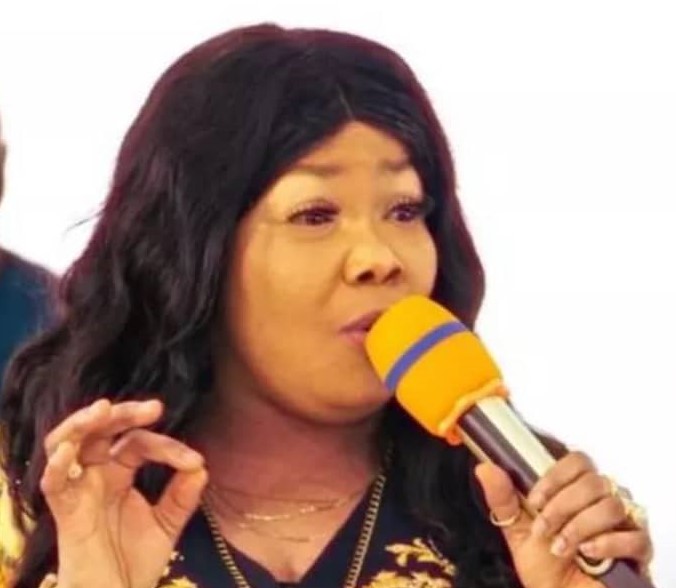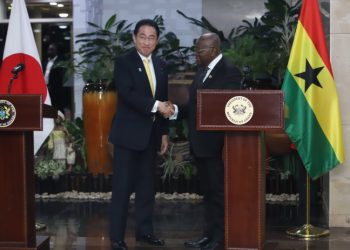
The 15-year prison sentence with hard labour handed to Patricia Asiedua Asiamah, popularly known as Nana Agradaa, marks a significant step in Ghana’s legal stance against fraudulent spiritual practices. Convicted by the Accra Circuit Court on multiple counts of charlatanic advertisement and defrauding by false pretence, the former traditional priestess turned evangelist has become a symbol in the fight against spiritual exploitation.
“This verdict sends an unequivocal message that no one, regardless of their spiritual claims or public persona, is above the law when it comes to defrauding citizens,” Prosecutor Mark Smith stated outside the courtroom.
A Deceptive Broadcast and the Demand for Justice
The case against Nana Agradaa stemmed from a televised broadcast in 2022, during which she claimed to possess spiritual powers to double money. This claim, widely seen as fraudulent, attracted scores of desperate Ghanaians who parted with large sums of money in hopes of instant wealth. Her conviction followed a mandatory pregnancy test, which cleared the way for immediate sentencing. Many Ghanaians view the ruling as a landmark moment for accountability in a country where spiritual manipulation can sometimes be weaponised for personal gain.
Public Perception of the Verdict
Public reaction to the jail sentence for Nana Agradaa, founder of Heaven Way International Church, has been divided. While some see it as a long-overdue victory for the rule of law, others view it as an attack on religious freedom.
Supporters of the verdict often cite Ghana’s Criminal Offences Act, 1960 (Act 29), specifically Sections 131–132 (defrauding by false pretences) and Section 137 (charlatanic advertisement), as the legal basis. They argue that while the constitution guarantees freedom of religion, it does not protect criminal activity. “This ruling validates the cries of many victims and reinforces public trust in our legal system to hold spiritual leaders accountable,” said Dr. Kwesi Botchway, a Ghanaian legal expert.
Critics of the verdict, however, often cite religious beliefs, distrust in the judiciary, or confidence in Agradaa’s spiritual authority. “This is an attack on a woman of God. People gave willingly out of faith, not under duress. The court misunderstood spiritual transactions,” a supporter argued.
They claim that the money given was a voluntary offering, not a result of fraudulent inducement, and that spiritual powers are beyond the jurisdiction of secular courts. For them, the case raises questions about the criminalisation of charismatic religious practices.
Ghana’s Specificity Versus U.S. Broadness
The legal process in Ghana offers an interesting contrast with that of the United States. Ghana’s criminal law directly addresses offences like “charlatanic advertisement”, allowing for targeted prosecution of those who exploit supernatural claims for financial gain—an approach made clear in Agradaa’s conviction.
In contrast, the U.S. legal system, rooted in common law and strongly protective of free speech and religion under the First Amendment, lacks equivalent statutes. Instead, it uses broader fraud laws—such as wire fraud, mail fraud, or consumer protection violations—to prosecute spiritual scams.
“While our legal language differs, the core principle remains consistent across democratic nations: religious freedom is not a licence for financial exploitation,” said Professor Evelyn Reed, a U.S. constitutional law expert, during an online seminar.
Shared Battles Against Spiritual Scams
Both Ghana and the U.S. face persistent challenges with religious and spiritual fraud. In Ghana, phenomena such as “mobile money miracles” and “Sakawa” (online fraud often mixed with rituals) highlight how belief systems are exploited for financial gain. The Agradaa case underscores a wider human vulnerability to miraculous promises.
In the U.S., affinity fraud is common, particularly within religious or ethnic communities. Televangelists and church leaders have been prosecuted for Ponzi schemes disguised as divine investment opportunities. While U.S. cases rarely involve money-doubling claims, the core issue—faith being exploited for financial gain—remains the same.
One notable case was the collapse of the Baptist Foundation of Arizona, which led to losses exceeding $500 million. In 2023 alone, the Federal Trade Commission reported that Americans lost over $2.7 billion (approximately 31.5 billion Ghanaian Cedis) to imposter scams, many of which were religious-themed.
Demographics such as older adults and minority groups are often disproportionately affected due to high trust within community networks and limited access to financial literacy. “These scams are particularly insidious because they weaponise trust—often the strongest glue in religious and community bonds,” said Sarah Chen, an FBI agent, in a recent public awareness campaign.
A Universal Warning
Nana Agradaa’s conviction is a strong warning—not just to Ghanaians, but to the world—about the legal and moral dangers of exploiting religion for personal enrichment. For international observers, the case provides insight into how Ghana’s legal system actively protects its citizens against economic fraud, even within the realm of faith.
The ruling has also reignited debate over the balance between religious freedom and legal accountability. While genuine spiritual practice remains protected, the court has affirmed that fraudulent conduct disguised as religious activity will not be tolerated.
As Ghanaians are reminded to approach spiritual claims with caution, especially when linked to financial promises, Nana Agradaa’s 15-year sentence stands as a powerful precedent: no one, not even a spiritual leader, is above the law.
DISCLAIMER: The Views, Comments, Opinions, Contributions and Statements made by Readers and Contributors on this platform do not necessarily represent the views or policy of Multimedia Group Limited.
DISCLAIMER: The Views, Comments, Opinions, Contributions and Statements made by Readers and Contributors on this platform do not necessarily represent the views or policy of Multimedia Group Limited.
- President Commissions 36.5 Million Dollars Hospital In The Tain District
- You Will Not Go Free For Killing An Hard Working MP – Akufo-Addo To MP’s Killer
- I Will Lead You To Victory – Ato Forson Assures NDC Supporters
Visit Our Social Media for More




